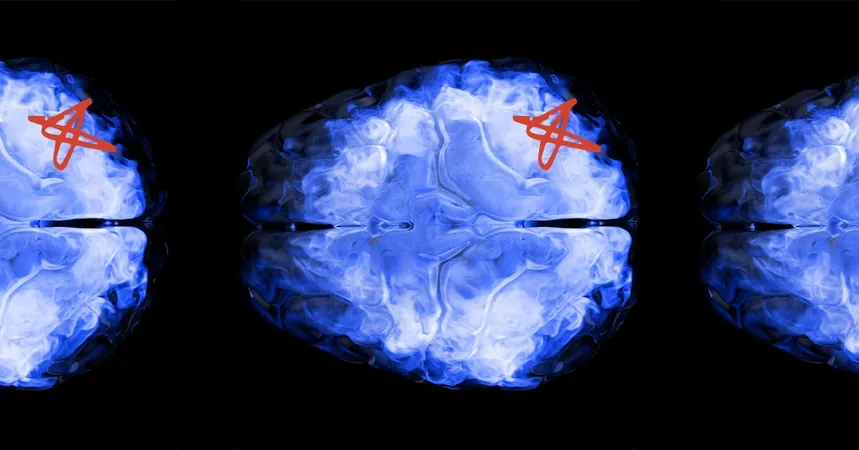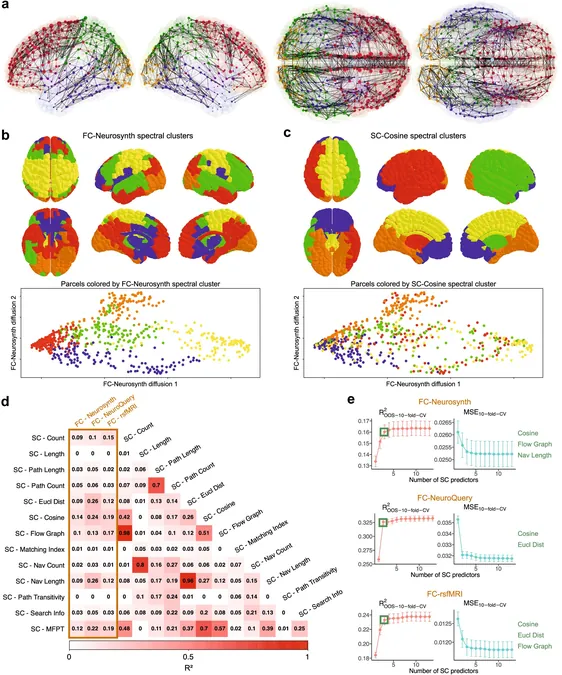
Unraveling the Mystery of Brain Waste Clearance: A Promising Step Against Alzheimer’s Disease?
2024-10-14
Author: Nur
Alzheimer’s disease currently impacts an estimated 32 million people worldwide, and despite ongoing research, a definitive cure remains elusive. This neurodegenerative condition is primarily linked to the buildup of toxic proteins, notably beta-amyloid and tau, in the brain, leading to its debilitating symptoms.
Recent groundbreaking research from Oregon Health and Science University sheds light on the brain’s glymphatic system, which plays a crucial role in clearing away this harmful waste. Understanding this mechanism is paramount, as scientists believe that enhancing the brain’s ability to remove these proteins might alter the trajectory of Alzheimer’s and similar diseases.
Dr. Juan Piantino, an associate professor specializing in pediatric neurology, emphasizes that the removal of harmful proteins is essential for maintaining brain health. 'If we can enhance the brain’s ability to eliminate these proteins, we might significantly impact the progression of diseases like Alzheimer’s and Parkinson’s,' he stated.
The innovative study, published in the Proceedings of the National Academy of Sciences, involved five patients with brain tumors who generously consented to participate. During surgical procedures, a gadolinium-based contrast agent was administered to observe how it propagated through their brains using advanced magnetic resonance imaging (MRI).
Piantino explained the significance of this imaging technique, stating, 'FLAIR allows us to visualize in detail where that contrast goes, providing insights into the brain’s waste clearance capabilities.'
The study revealed a complex waste-clearing system in the brain, comprising a network of perivascular spaces surrounding small blood vessels. 'The brain is a high-energy organ, generating waste that requires effective removal, akin to doing the dishes in a kitchen sink,' Piantino remarked. His research confirmed that fluid circulates through these channels, pushing waste away from brain tissue, a phenomenon previously observed only in mice.
Moreover, the study found that optimal sleep is critical for the glymphatic system's functionality. 'Waste removal predominately occurs during sleep, similar to how we clean our dishes at night,' he explained. The researchers are investigating ways to enhance waste clearance through lifestyle changes, particularly focusing on the impact of sleep.
As advancements in imaging technology reveal more about the glymphatic system, experts are hopeful that such insights could pave the way for preventive measures against Alzheimer’s. However, opinions among neurologists vary. Clifford Segil, a neurologist not involved in the study, acknowledges the potential significance of these findings in neuro-oncology but cautions against overestimating their relevance in cognitive neurology. 'While we are beginning to understand the glymphatic system better, its role in transporting proteins like amyloid and tau within the central nervous system remains unclear,' he maintained.
As the field moves forward, researchers like Piantino are eager to explore various avenues, including non-pharmaceutical methods, to improve brain waste clearance. 'With further studies, we hope to deepen our understanding and potentially contribute to preventive strategies against Alzheimer’s disease and related conditions,' he concluded.
Stay tuned as science continues to unlock the secrets of brain health, offering hope for future generations facing the threat of dementia!


 Brasil (PT)
Brasil (PT)
 Canada (EN)
Canada (EN)
 Chile (ES)
Chile (ES)
 España (ES)
España (ES)
 France (FR)
France (FR)
 Hong Kong (EN)
Hong Kong (EN)
 Italia (IT)
Italia (IT)
 日本 (JA)
日本 (JA)
 Magyarország (HU)
Magyarország (HU)
 Norge (NO)
Norge (NO)
 Polska (PL)
Polska (PL)
 Schweiz (DE)
Schweiz (DE)
 Singapore (EN)
Singapore (EN)
 Sverige (SV)
Sverige (SV)
 Suomi (FI)
Suomi (FI)
 Türkiye (TR)
Türkiye (TR)